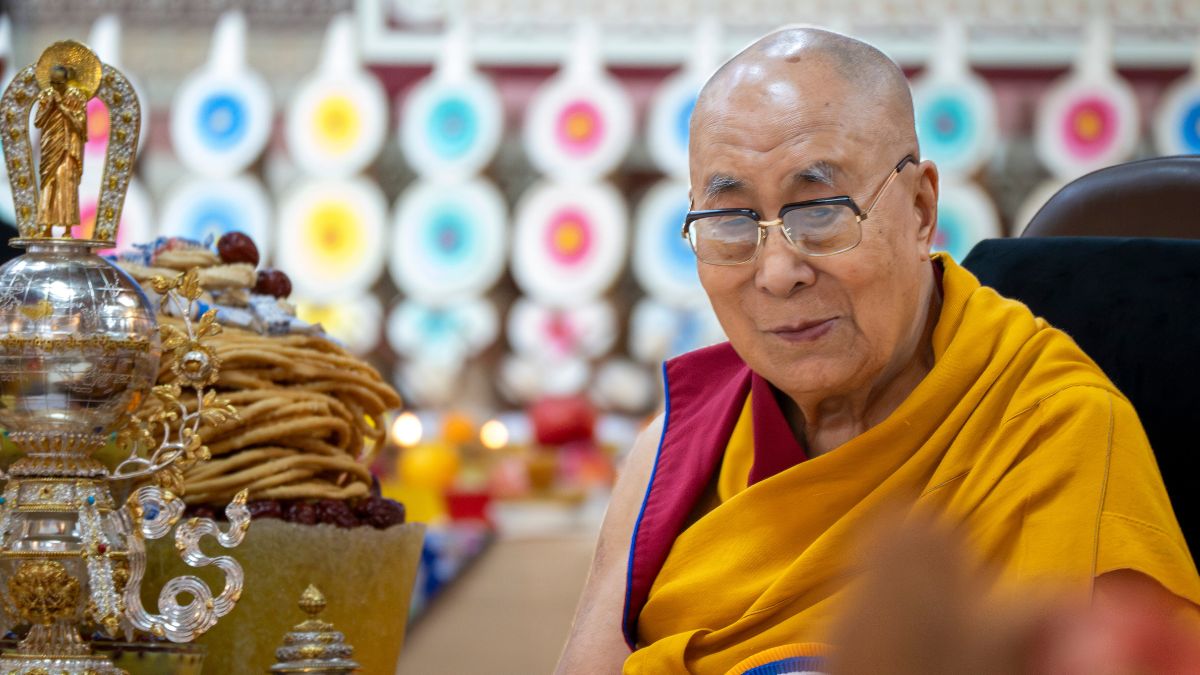Putting an end to years of uncertainty, Tibetan spiritual leader the Dalai Lama has confirmed that the long-standing Tibetan Buddhist tradition will carry on even after his death.
On Wednesday, he declared that only the Gaden Phodrang Trust would have the authority to identify his next reincarnation.
By saying this, he made it clear that China would have no part in selecting his successor as the spiritual leader of Tibetan Buddhists.
ALSO READ | How is the Dalai Lama chosen?
The Nobel Peace Prize winner, who turns 90 this Sunday, is seen as one of the most respected global figures, with followers that go far beyond the Buddhist community.
So, what exactly is the Gaden Phodrang Trust, which the Dalai Lama has said will be responsible for finding his reincarnation?
Let’s take a look:
What is the Gaden Phodrang Trust?
The name Gaden Phodrang originally referred to the official residence of the Dalai Lamas, starting from the second Dalai Lama, at Drepung Monastery in Lhasa.
In 2011, a non-profit by the same name was registered in Himachal Pradesh’s Dharamshala, where the Dalai Lama now lives.
Its members include the Dalai Lama himself, senior monk Samdhong Rinpoche, and a few of the Dalai Lama’s close aides from his Dharamshala office.
The Dalai Lama leads the trust, with Rinpoche acting as the “alternate chairperson”, the second most senior member. Rinpoche is believed by Tibetans to be the reincarnation of a respected monk. All members of the trust must live in India.
Impact Shorts
More ShortsThe Dalai Lama, along with many other Tibetans, left Tibet in 1959 following a failed uprising against Chinese rule.
Since then, he has pushed for what he calls a “middle-way approach” that does not demand full independence from China, but instead asks for Tibetan autonomy to safeguard its culture, religion and identity.
The Gaden Phodrang Trust is one of three organisations linked to the Dalai Lama.
Notably, its aim includes identifying the Dalai Lama’s next reincarnation.
It operates out of the Dalai Lama’s office and is managed by Samdhong Rinpoche.
ALSO READ | Who will be the next Dalai Lama?
What is the trust responsible for?
Right now, its main focus is to support the Dalai Lama’s spiritual and humanitarian work.
On Wednesday, during a religious conference, the Dalai Lama said that members of the trust should work with the heads of Tibetan Buddhist traditions and other senior figures to “carry out the procedures of search and recognition in accordance with past tradition”.
Back in 2011, the Dalai Lama had said he would leave “clear written instructions” about this process.
However, Rinpoche said on Wednesday that the Dalai Lama had not done so yet, as he is in good health and has expressed his intention to live for many more years.
What did China say?
China has long claimed it has the right to approve the Dalai Lama’s successor.
It says that the selection process, where names of possible reincarnations are drawn from a golden urn, dates back to 1793, during the Qing dynasty.
Just hours after the Dalai Lama’s announcement on Wednesday, China reiterated its stance. At a press briefing, Chinese foreign ministry spokesperson Mao Ning said that the Dalai Lama’s succession must follow Chinese laws, religious rituals, and historical customs.
According to Beijing, national law requires that the reincarnation be chosen using the golden urn and that the new Dalai Lama be born within China’s borders.
However, many Tibetans question any Chinese involvement in this process.
China considers the Dalai Lama a “separatist” and bans public displays of his image or open admiration for him. Though he was awarded the Nobel Peace Prize in 1989 for his efforts to keep the Tibetan cause alive, Beijing rejects his views.
China insists it has not curtailed Tibetan rights and says its governance helped end serfdom in the region and brought development.
What did India say?
India is home to the Dalai Lama and over 100,000 Tibetan Buddhists who live, work and study freely in the country.
He is deeply respected by many Indians, and experts believe his presence in India gives the country some influence in its relations with China.
On Thursday, India firmly pushed back against China’s claim. It said only the Dalai Lama has the authority to choose his successor.
Union Minister for Minority Affairs Kiren Rijiju said, “The position of the Dalai Lama is of utmost importance, not just for Tibetans but for all his followers across the world. The right to decide on his successor rests solely with the Dalai Lama himself”.
Are there other Dalai Lama non-profits?
Yes, there is another Gaden Phodrang organisation based in Zurich, Switzerland.
Like its counterpart in India, it carries out different activities on behalf of the Dalai Lama. It is also led by him and includes his aides.
According to its website, its main role is to “maintain and support the tradition and institution of the Dalai Lama with regard to the religious and spiritual duties of the Dalai Lama”.
Notably, the Dalai Lama Trust is a charitable arm of his office in Dharamshala.
With inputs from agencies
)